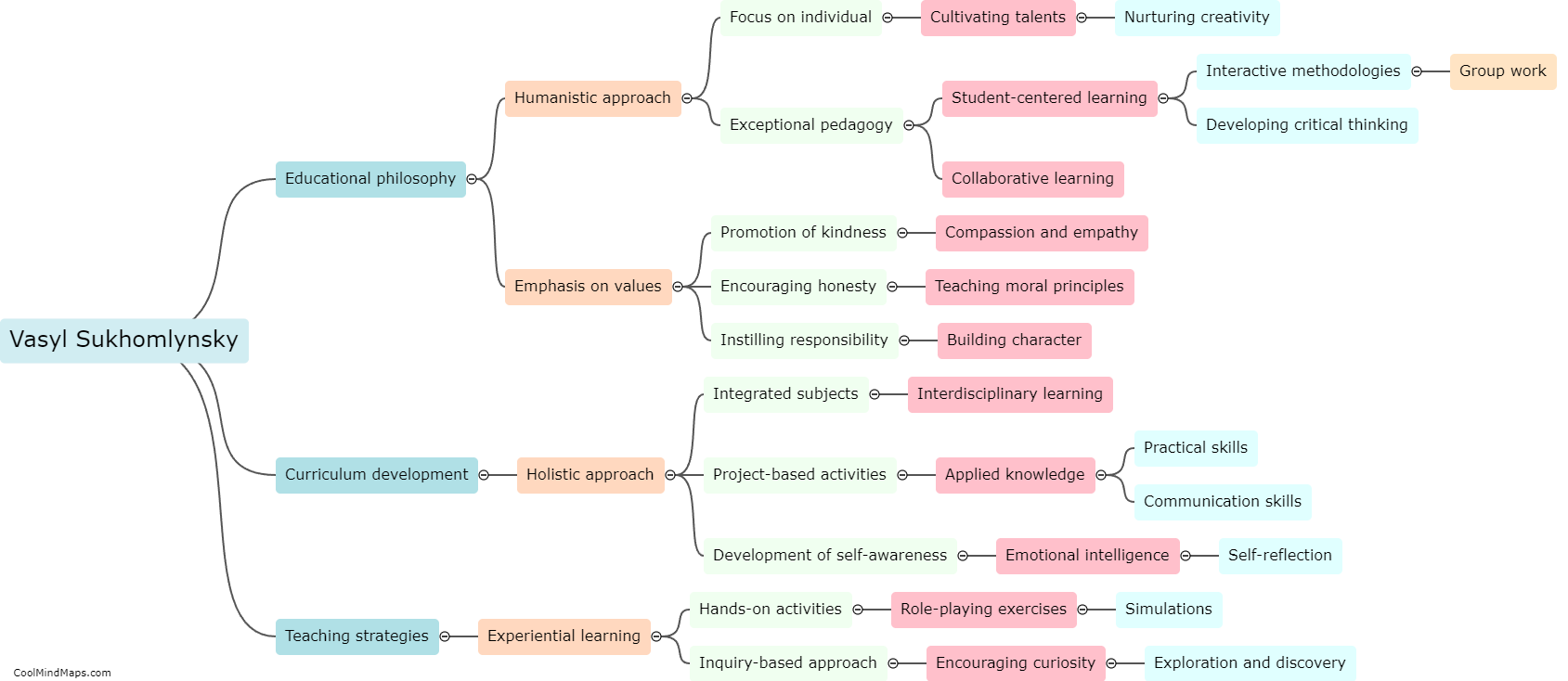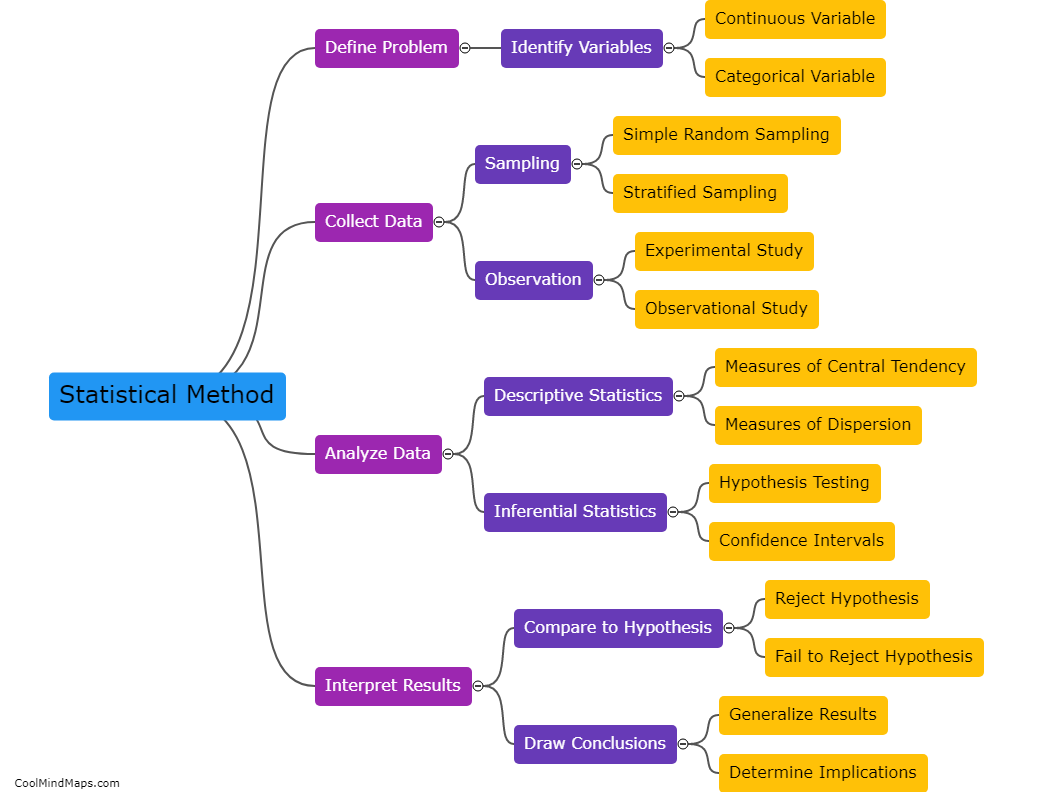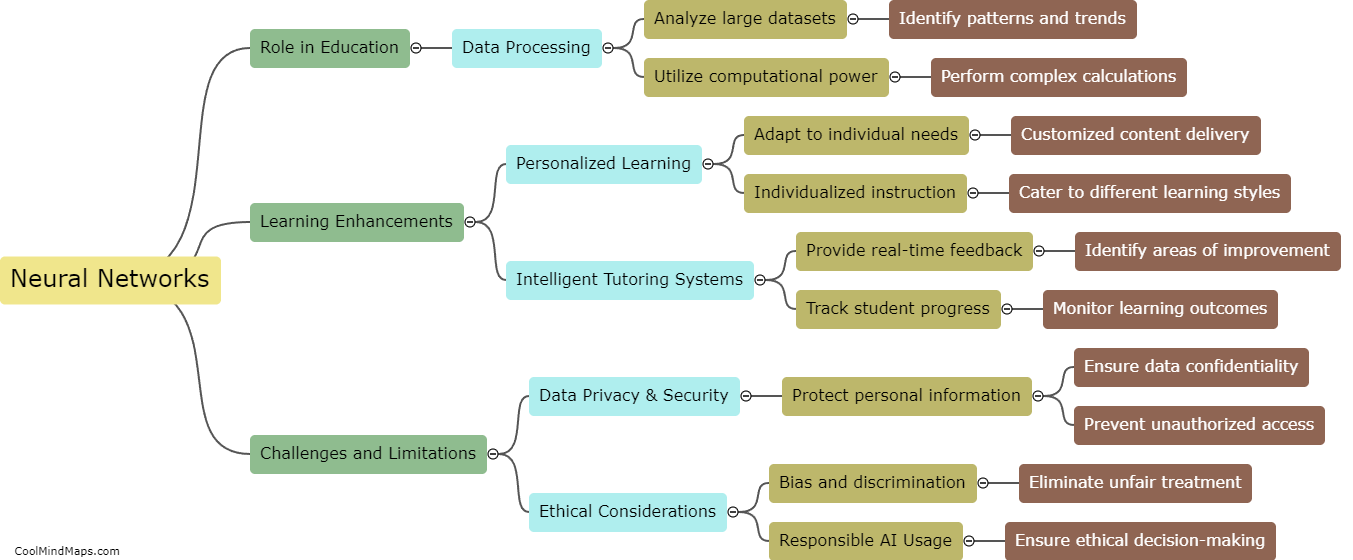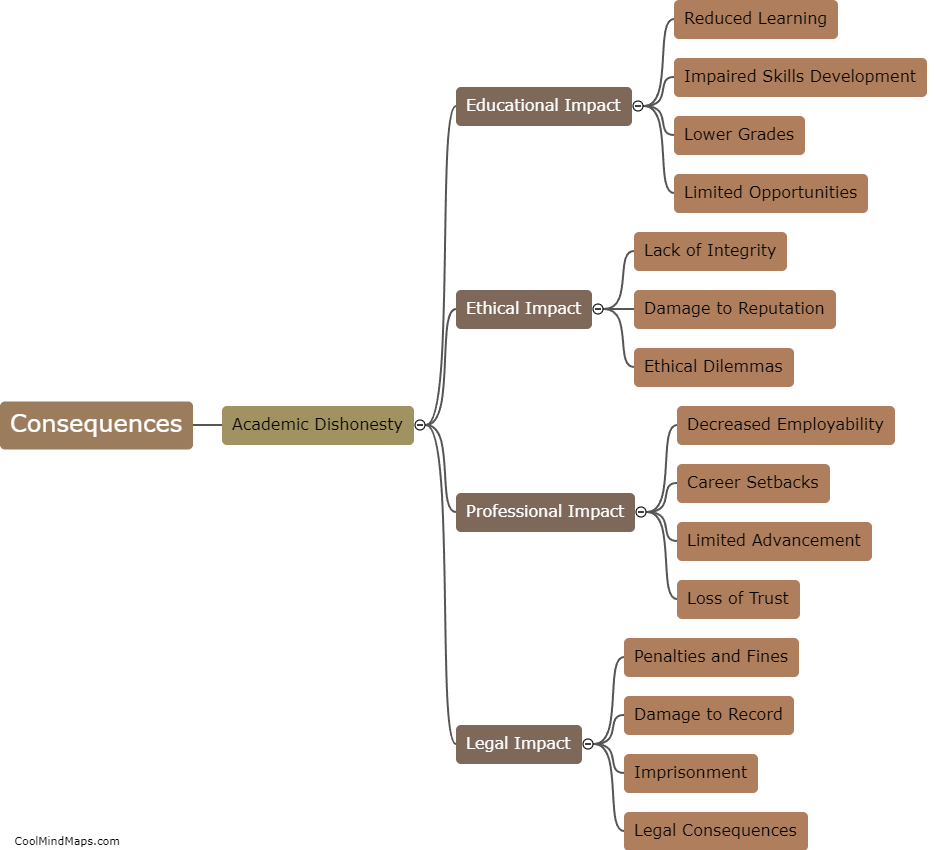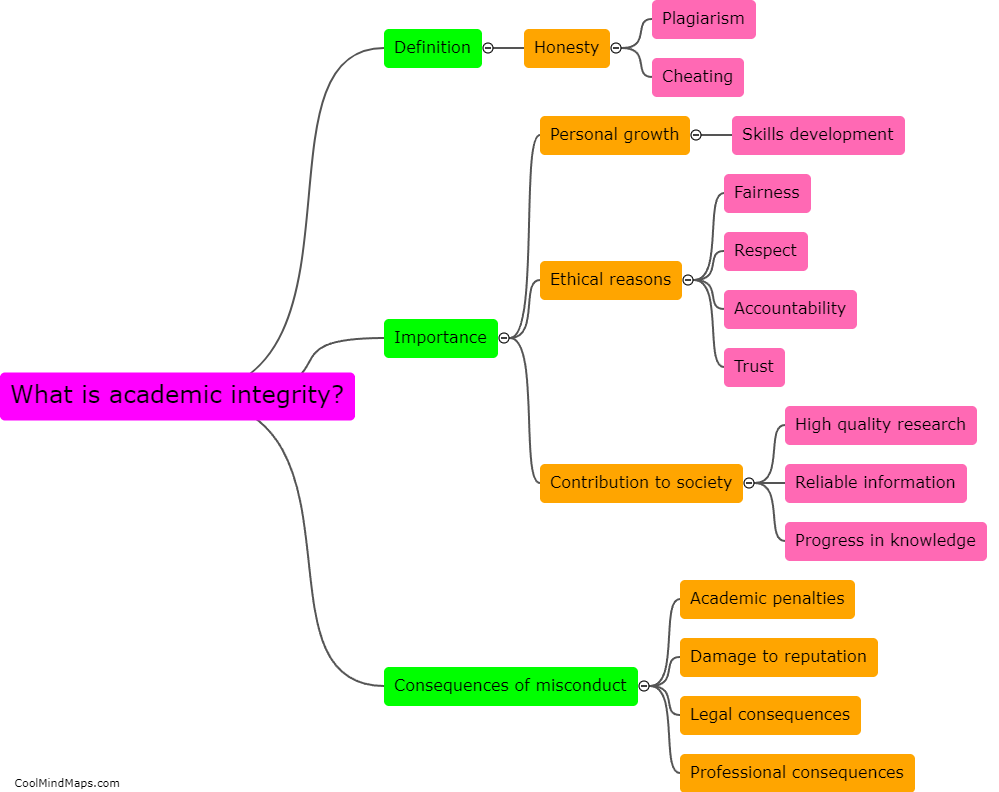What are the basic principles of probability?
The basic principles of probability are fundamental concepts that guide the study and calculation of probabilities. These principles include the notions of sample space, events, and probabilities. The sample space is the set of all possible outcomes of an experiment, while events are subsets of the sample space. Probabilities are assigned to events, representing the likelihood of their occurrence. The principles of probability also involve the concepts of mutually exclusive and exhaustive events, as well as the addition and multiplication rules. Moreover, the principles of probability encompass the concept of independent and dependent events, which affect the computation of probabilities. Overall, understanding and applying these principles is essential for accurately analyzing and predicting the likelihood of various outcomes.

This mind map was published on 8 November 2023 and has been viewed 89 times.






